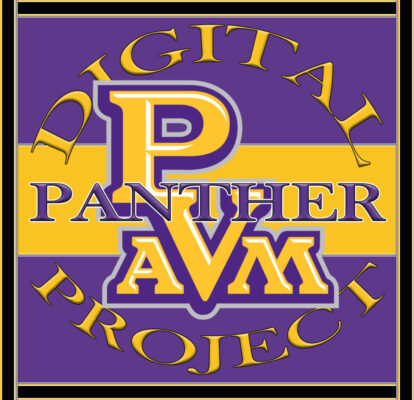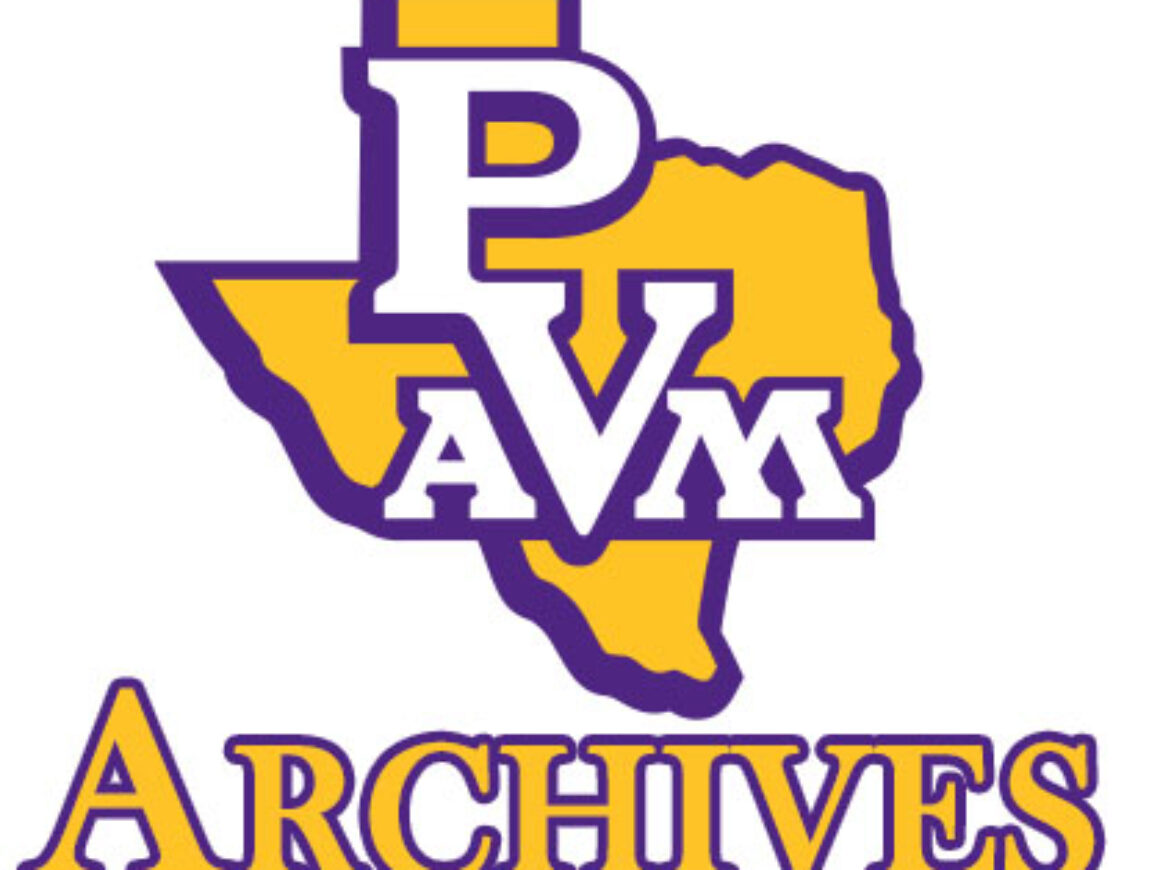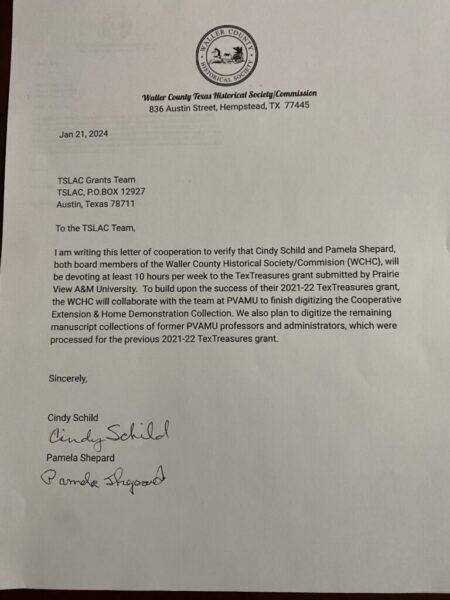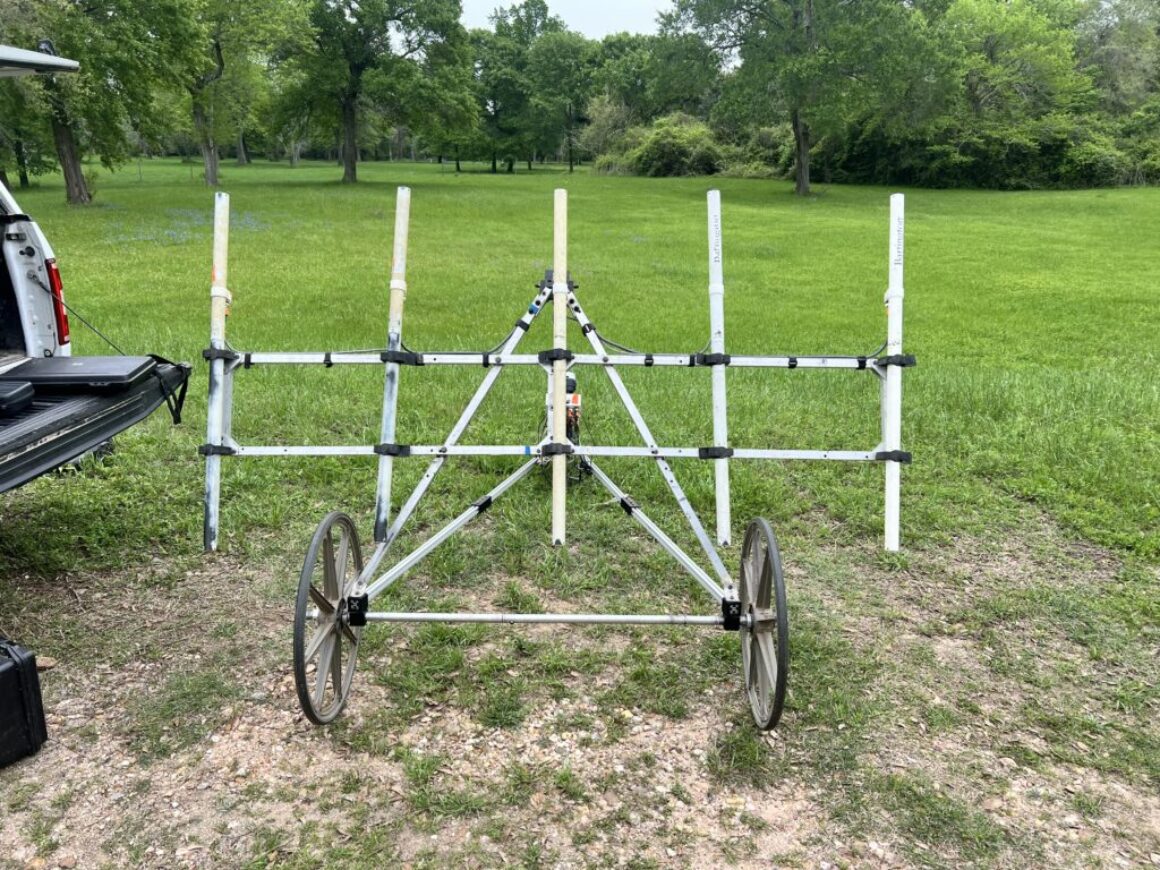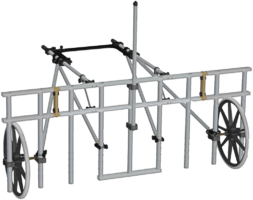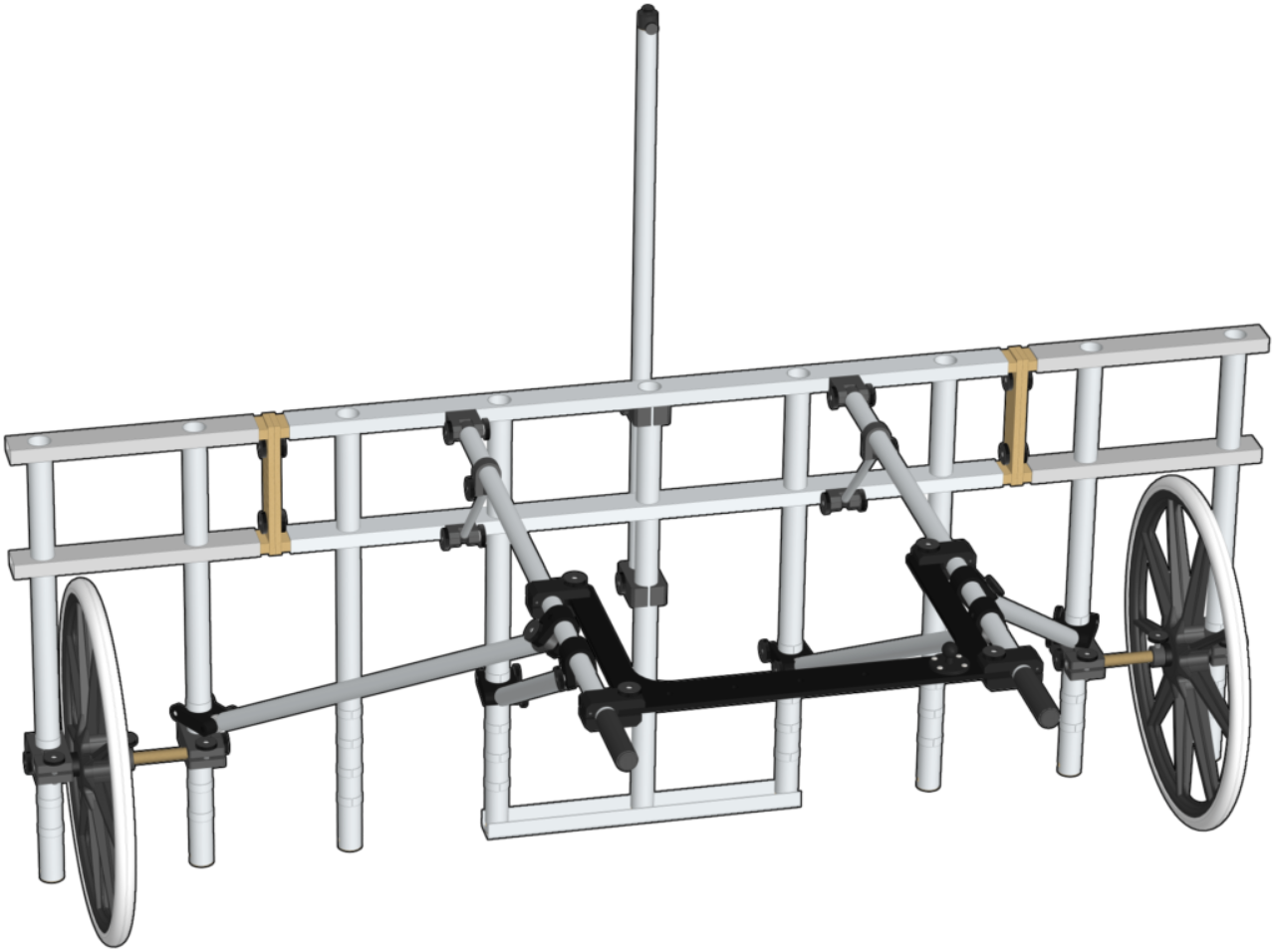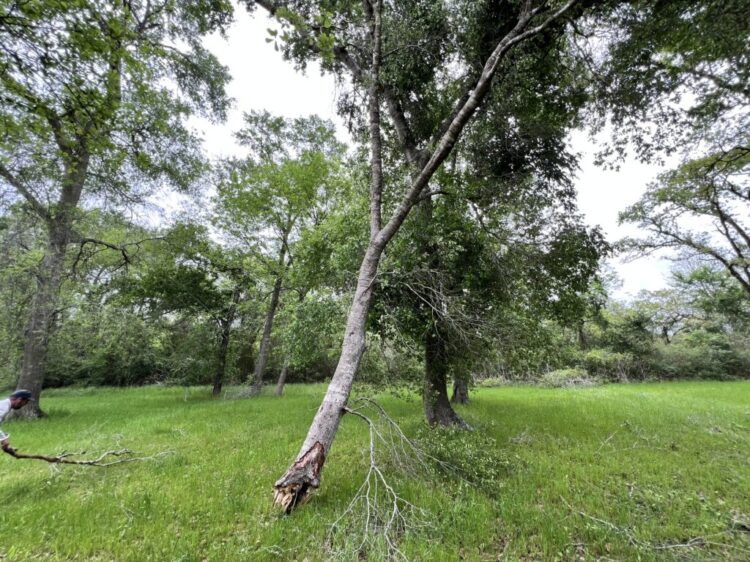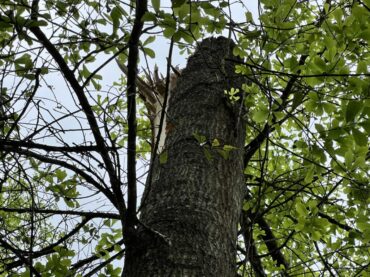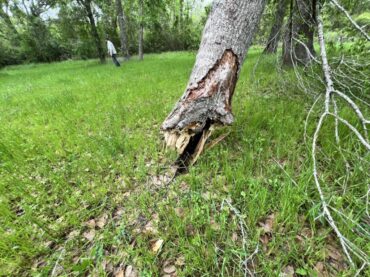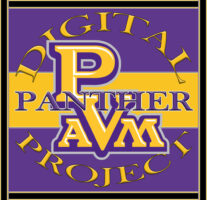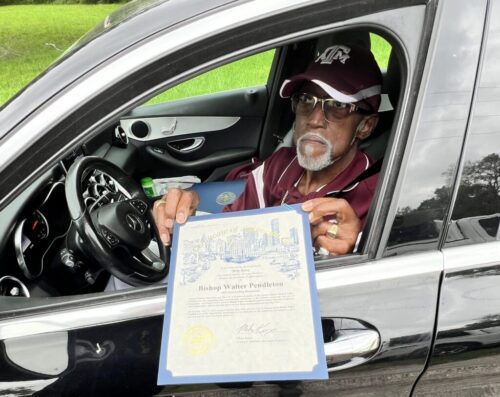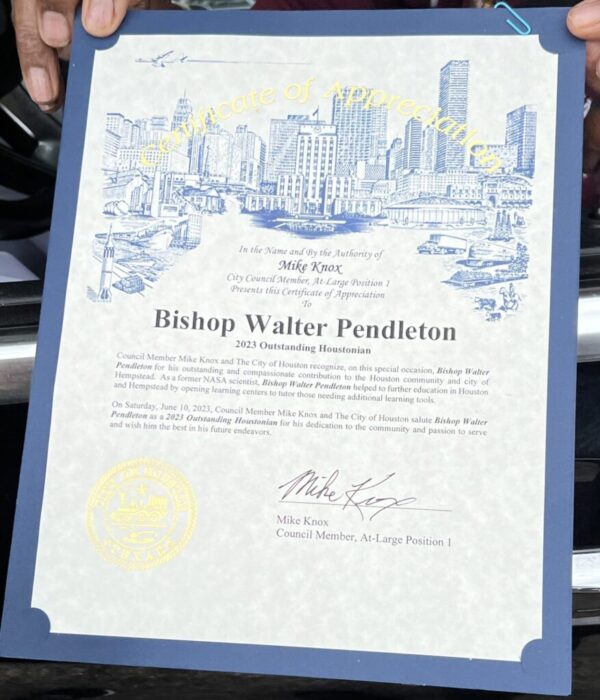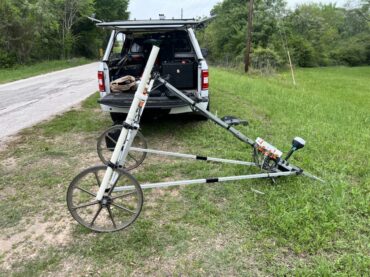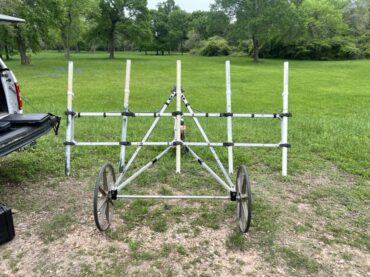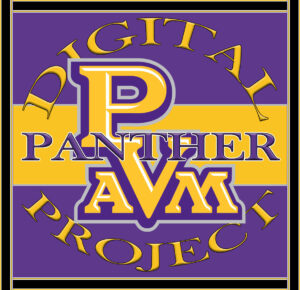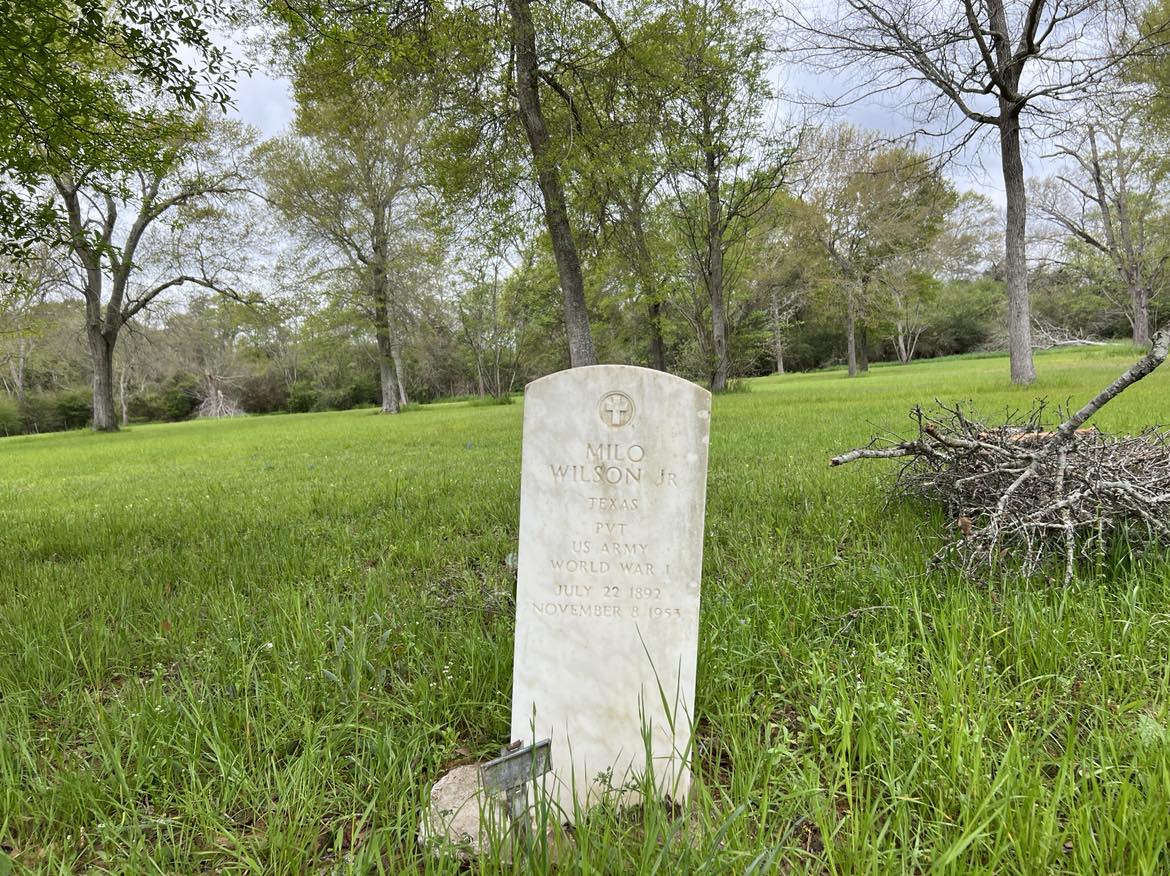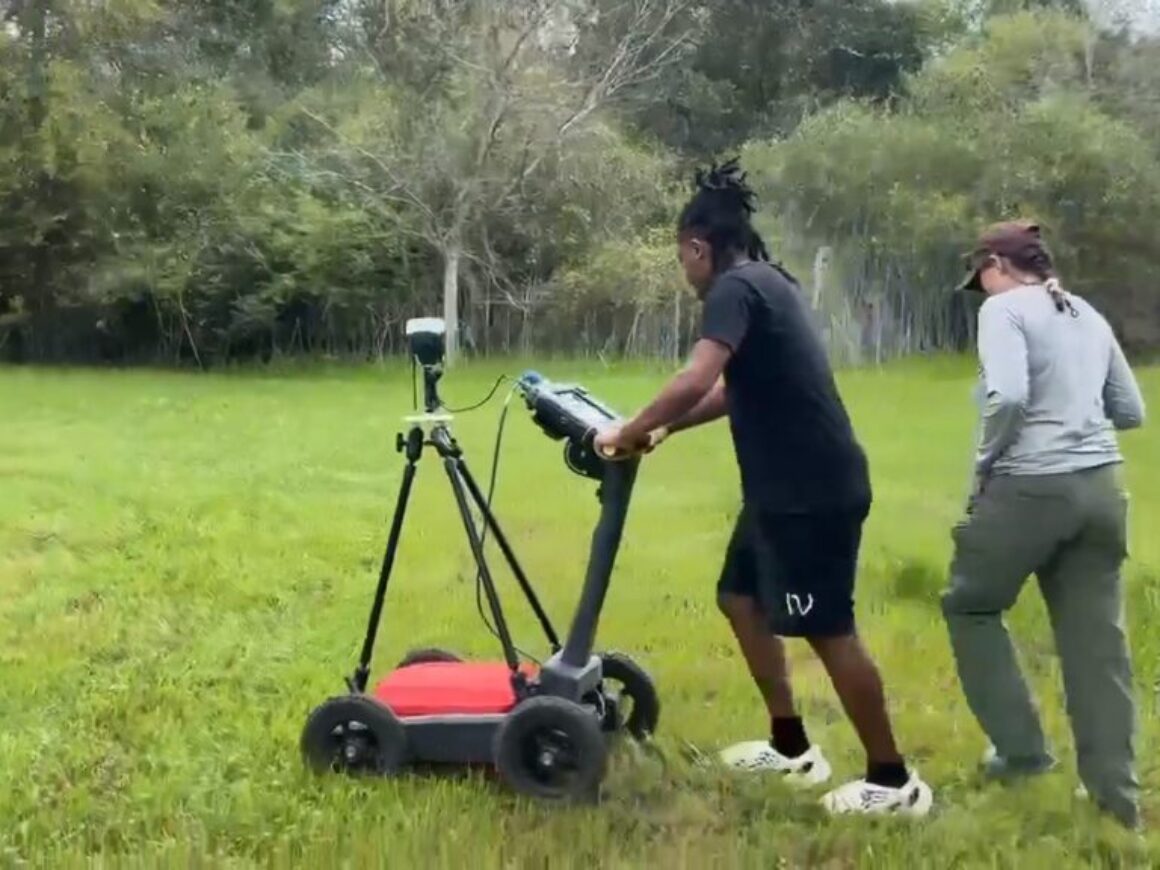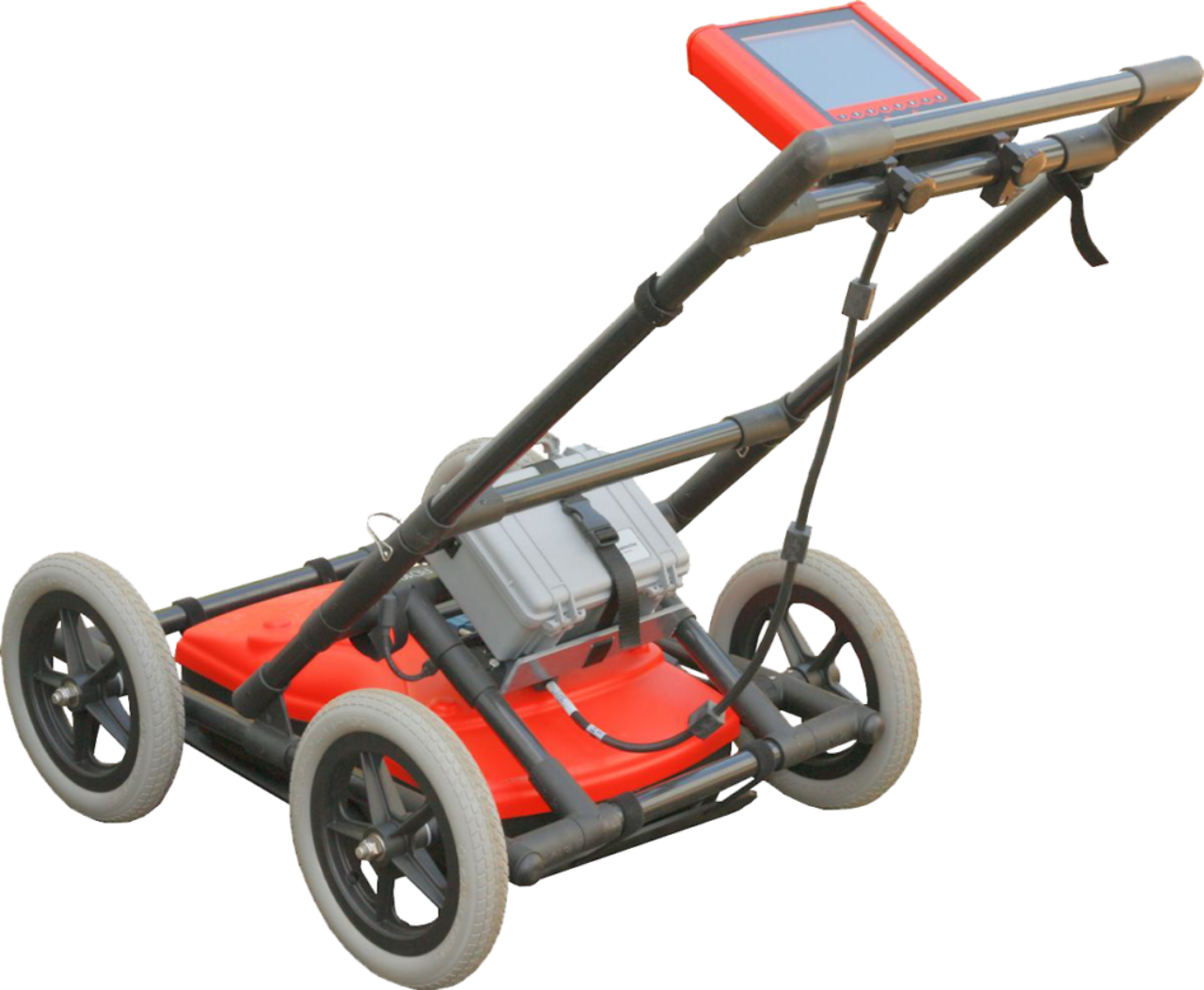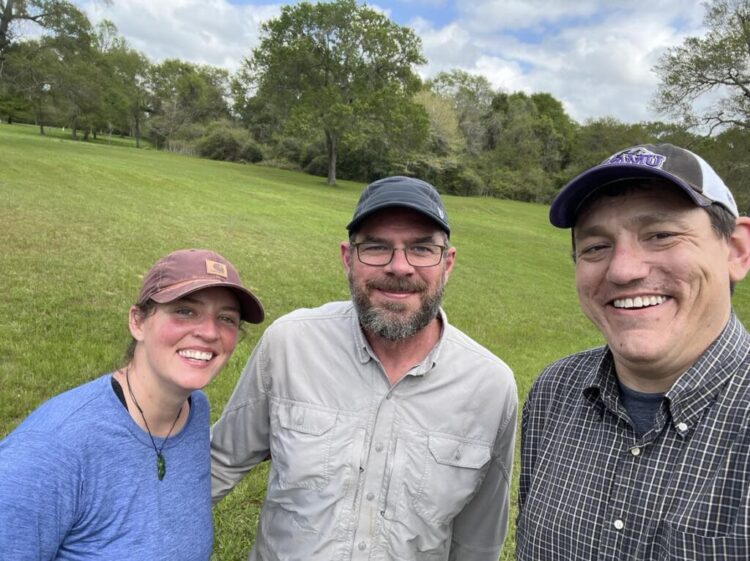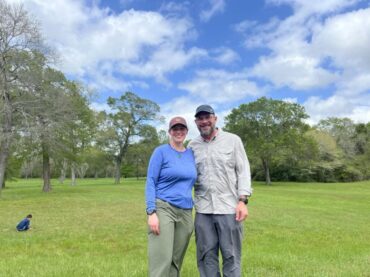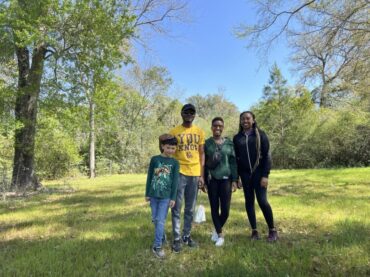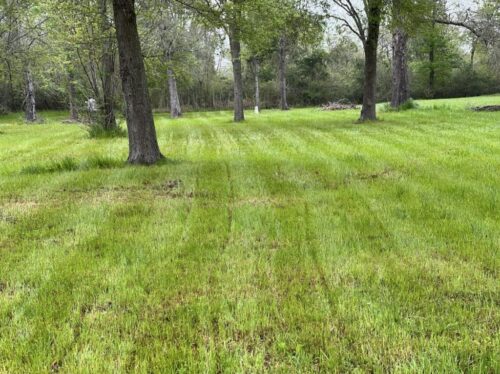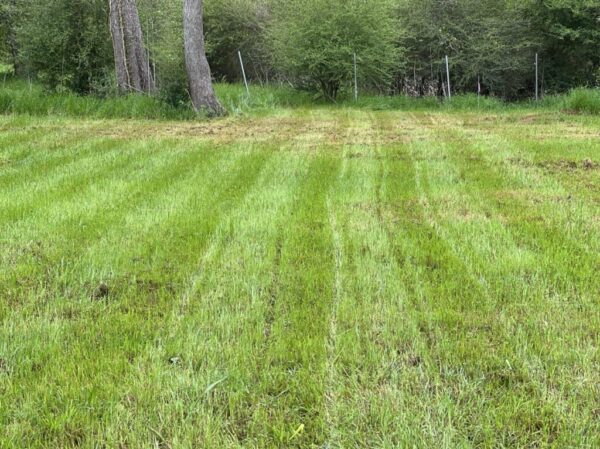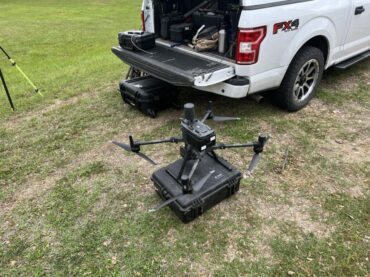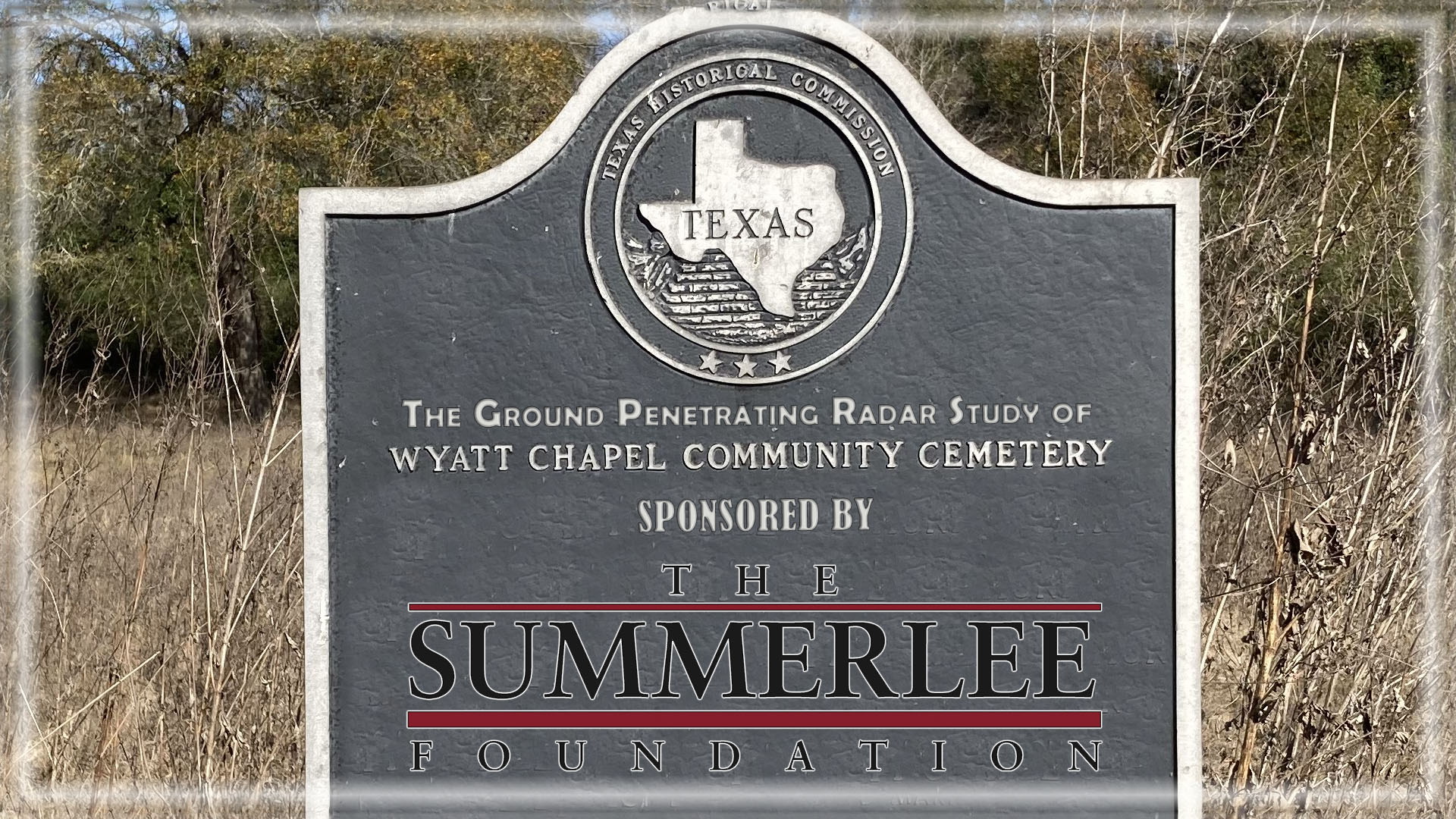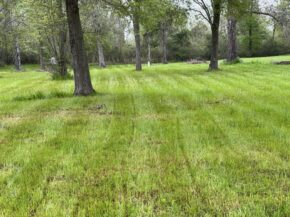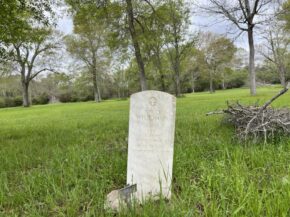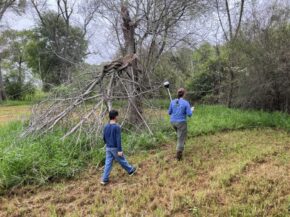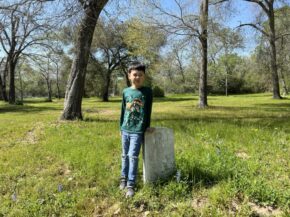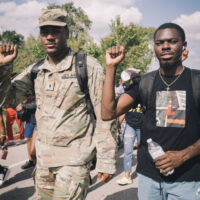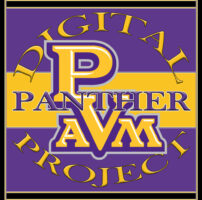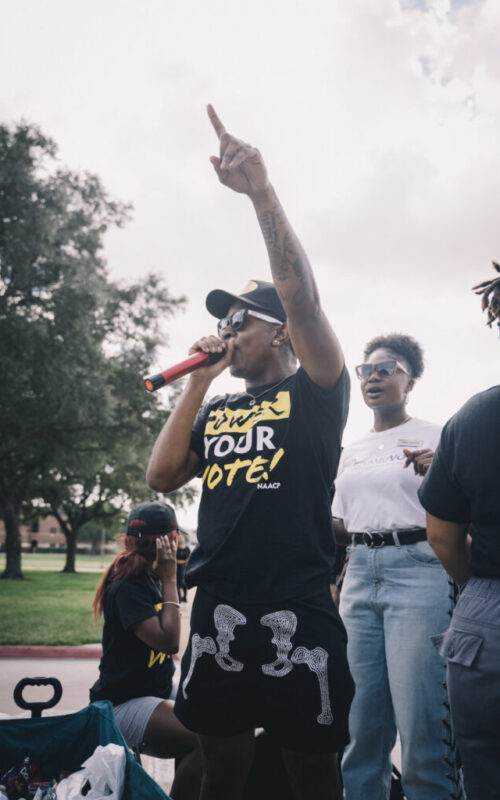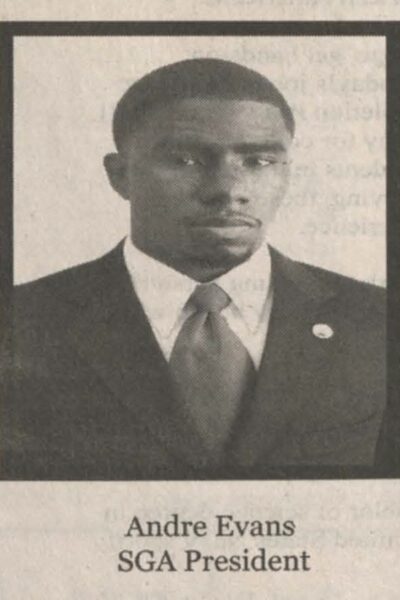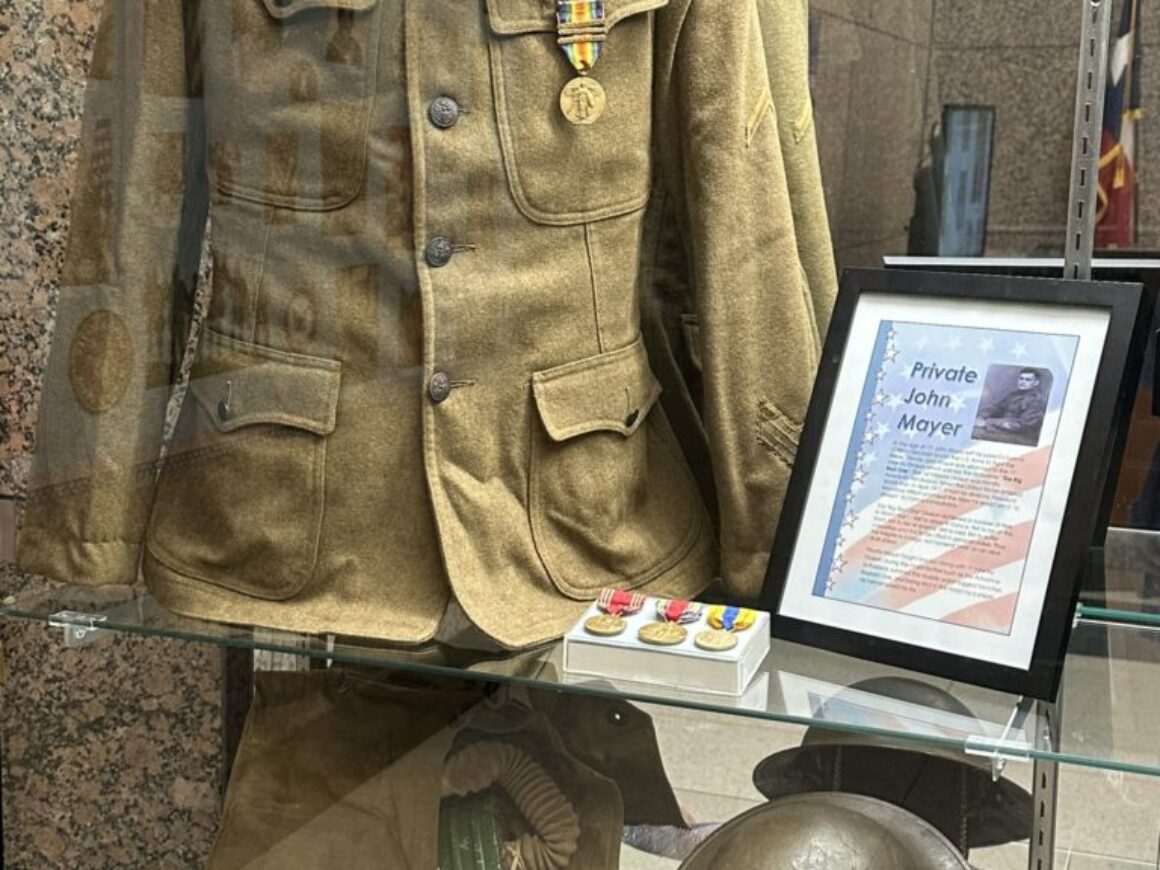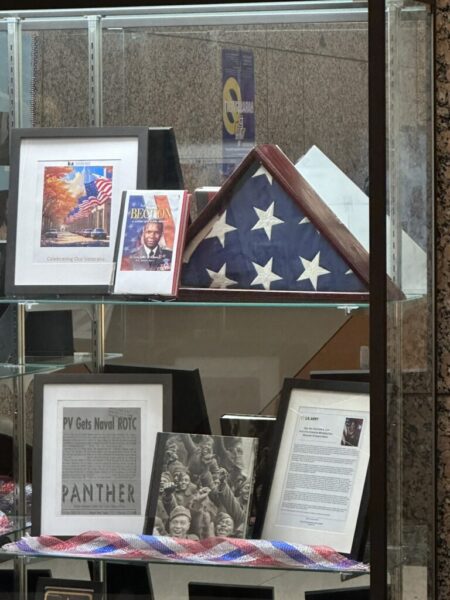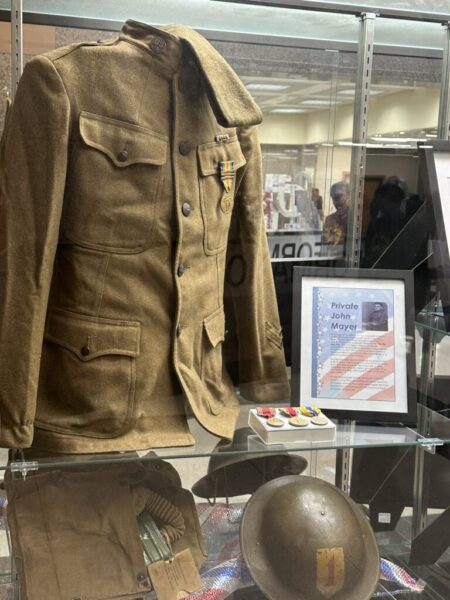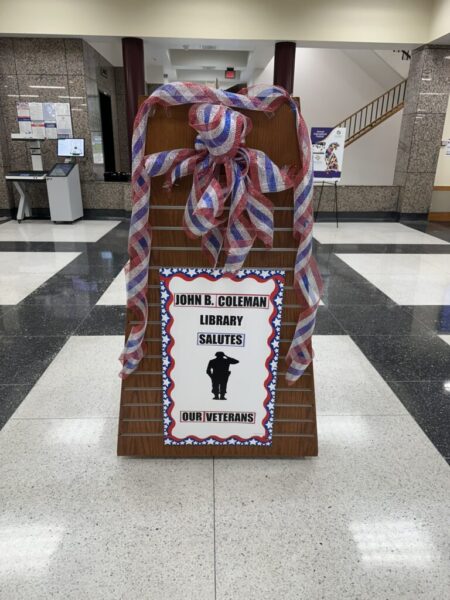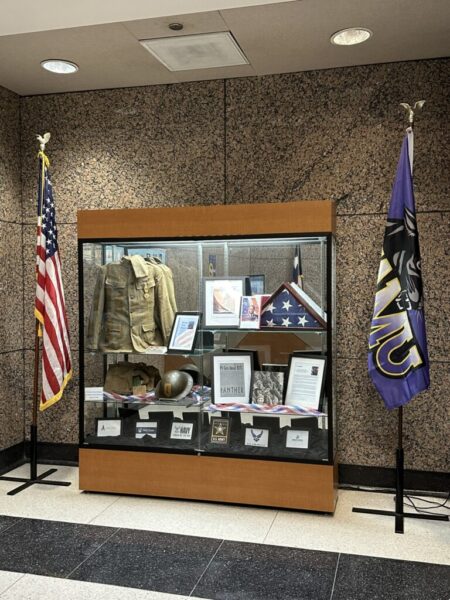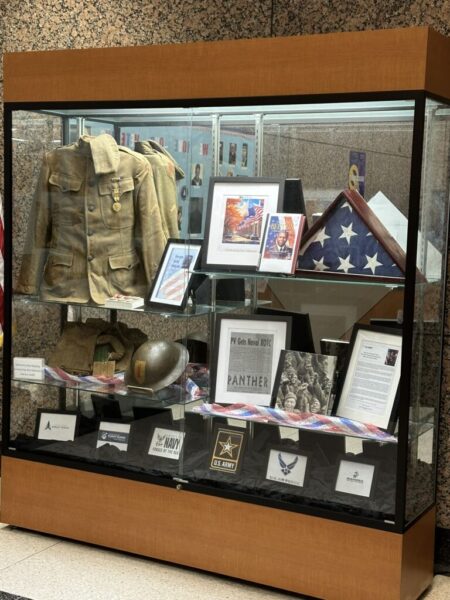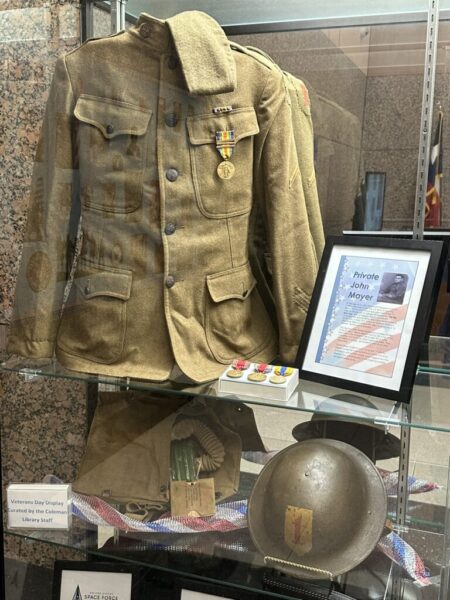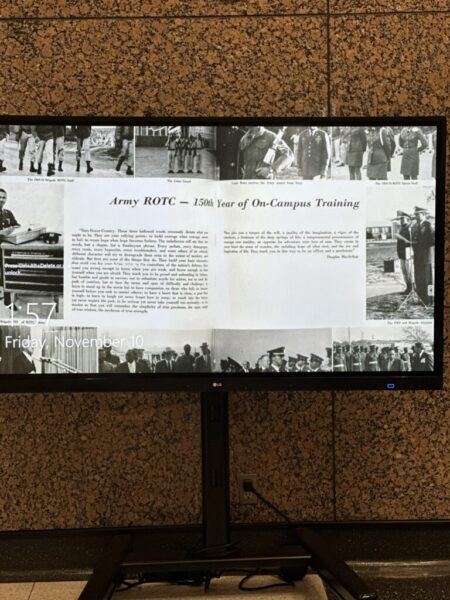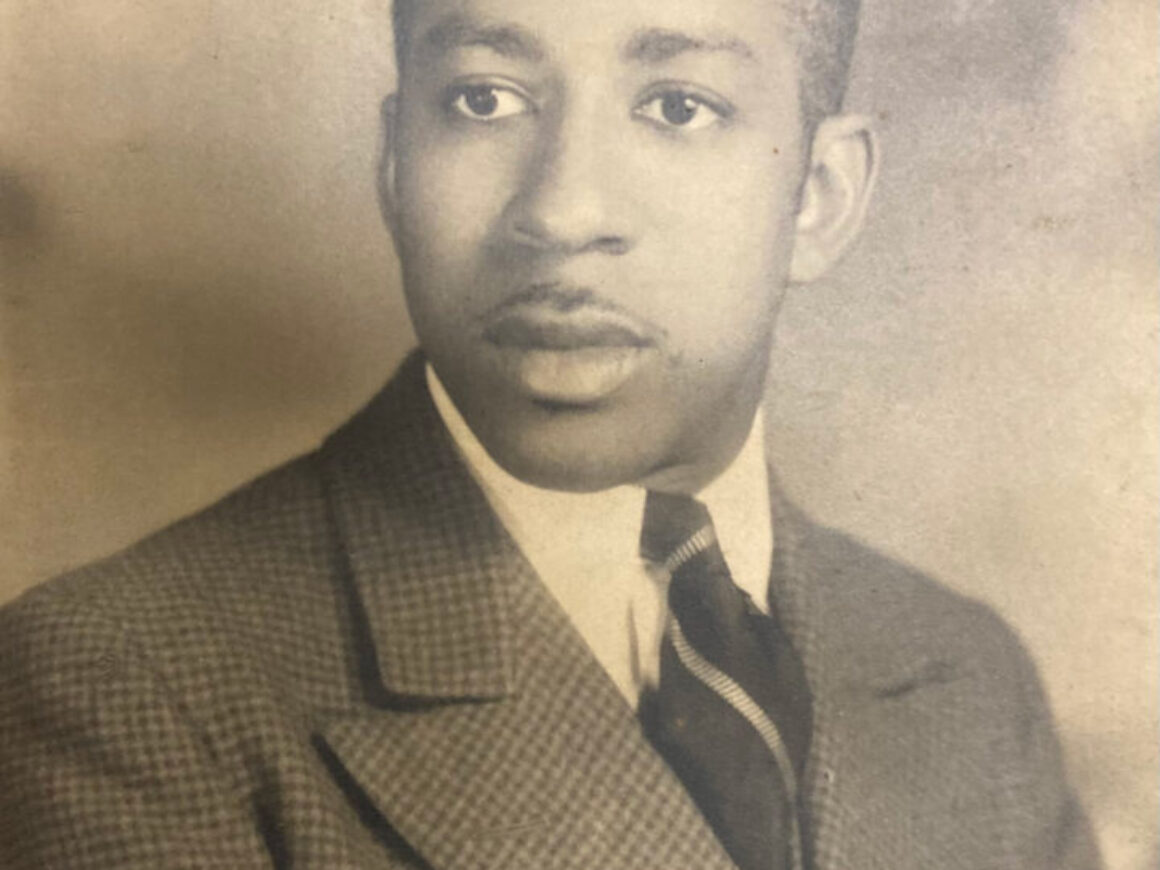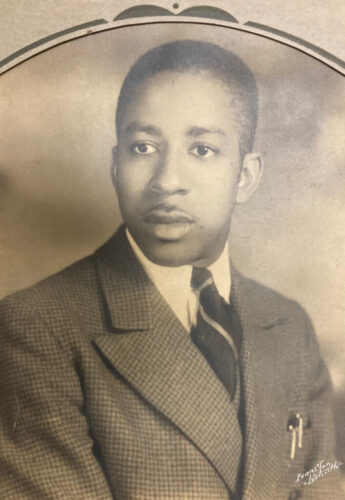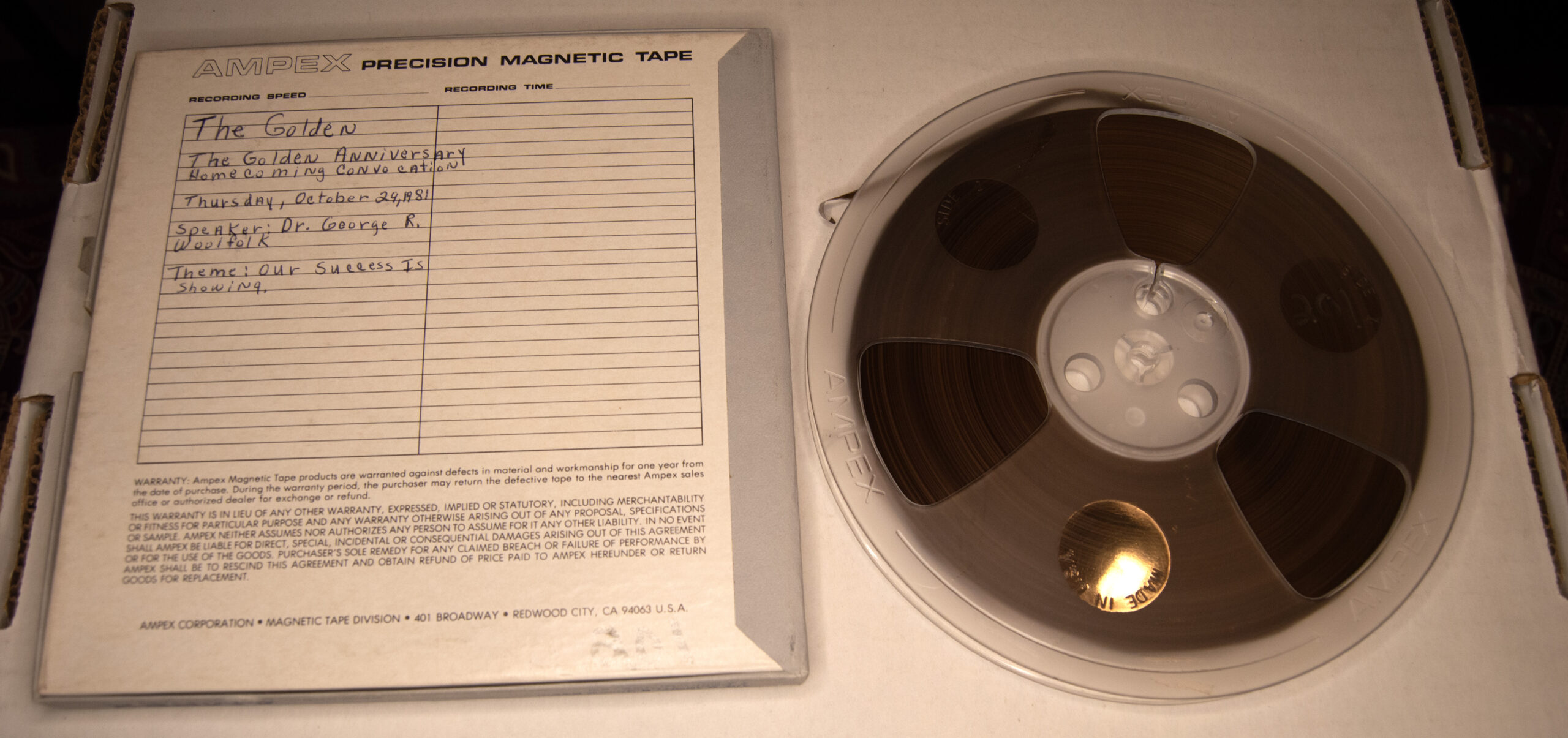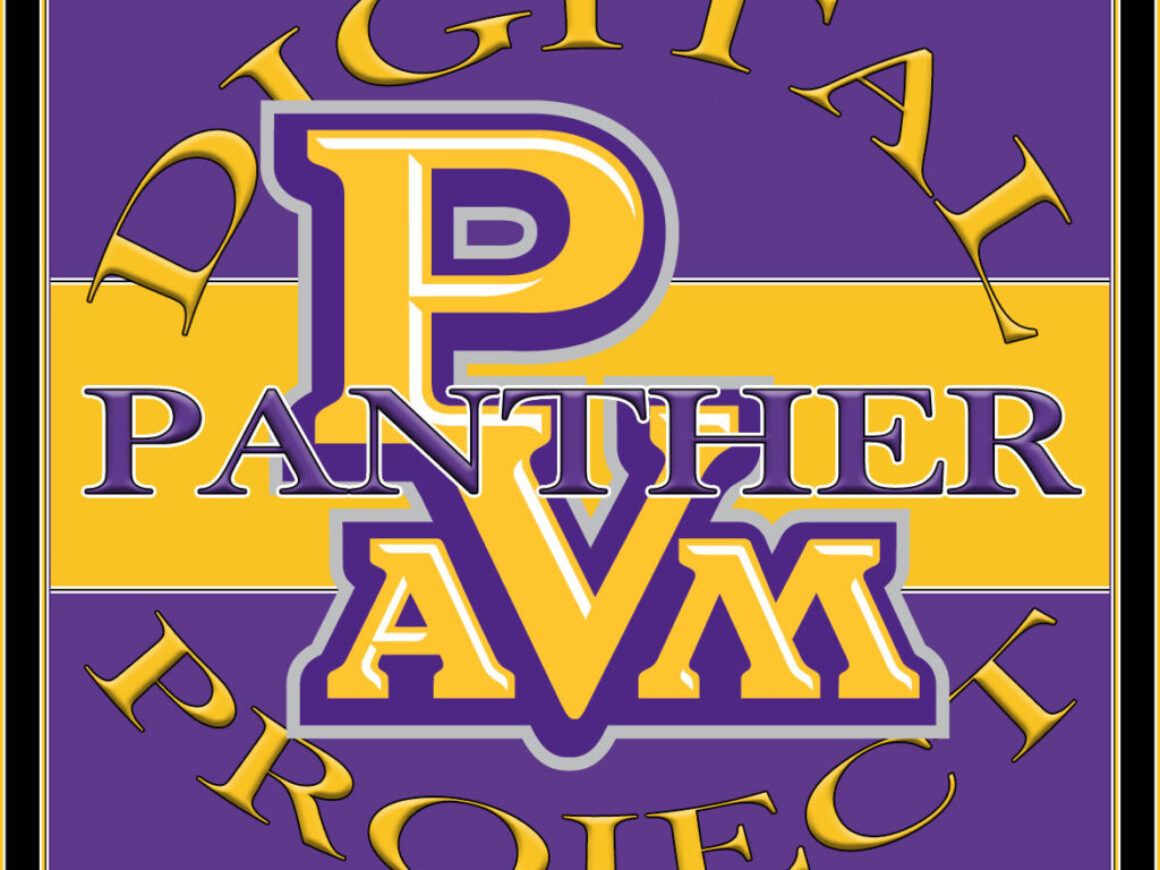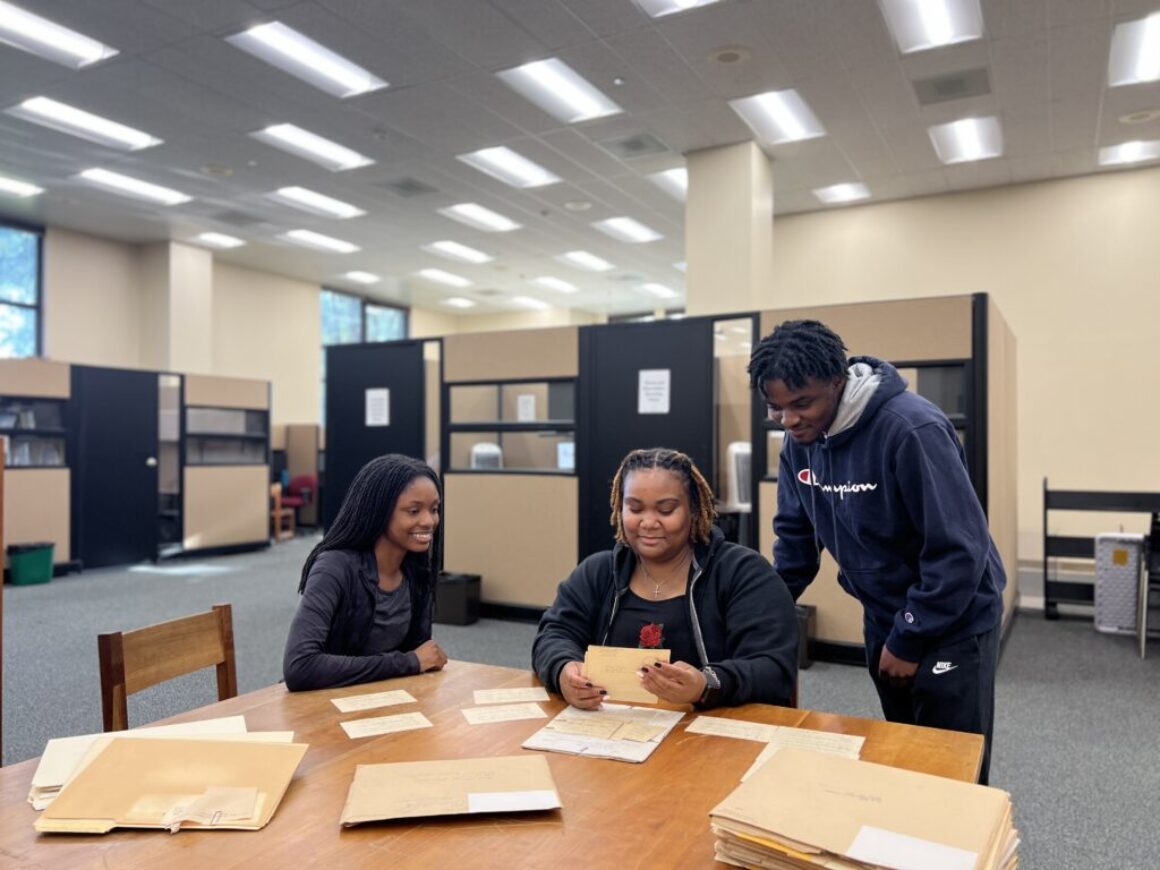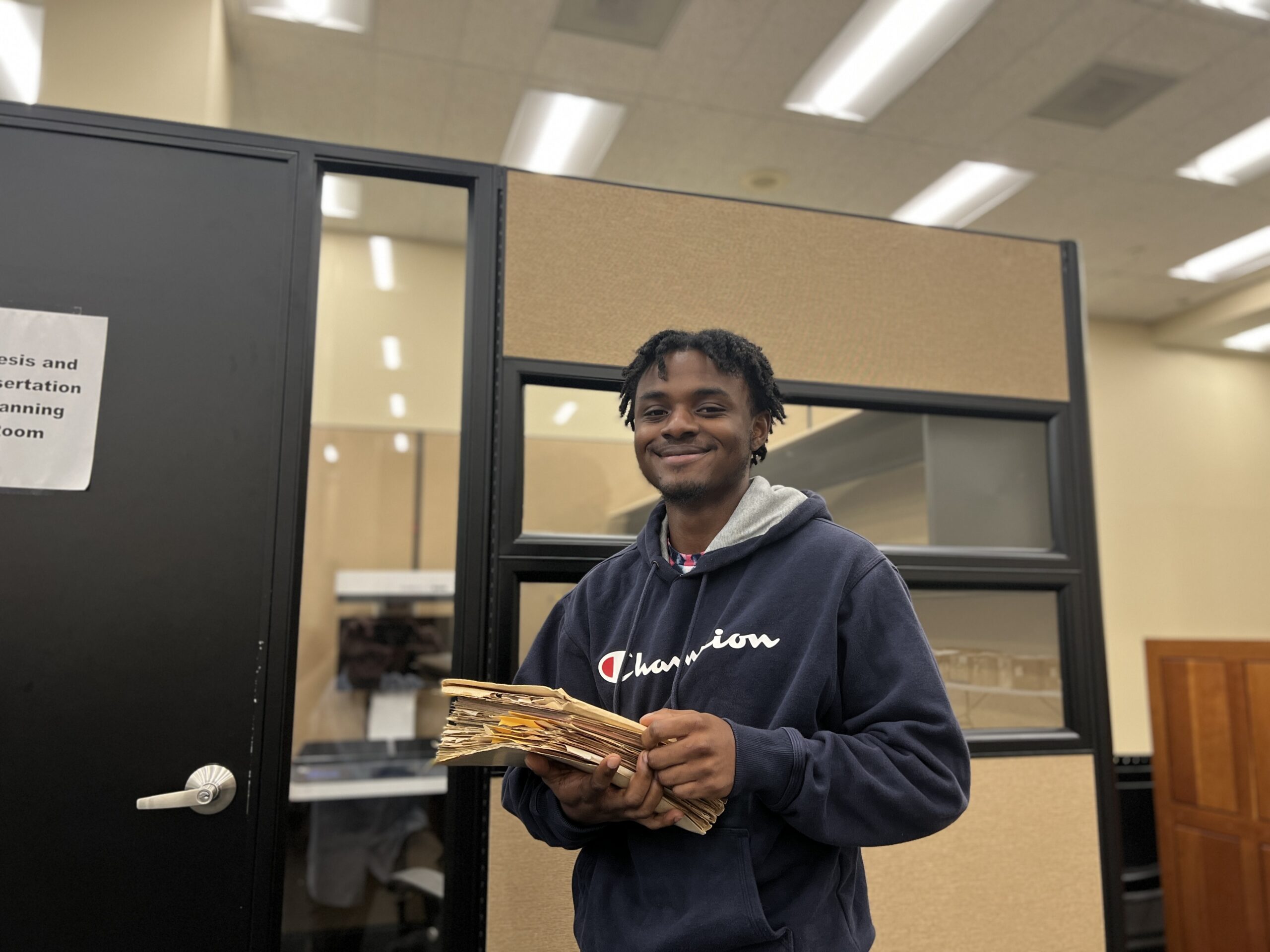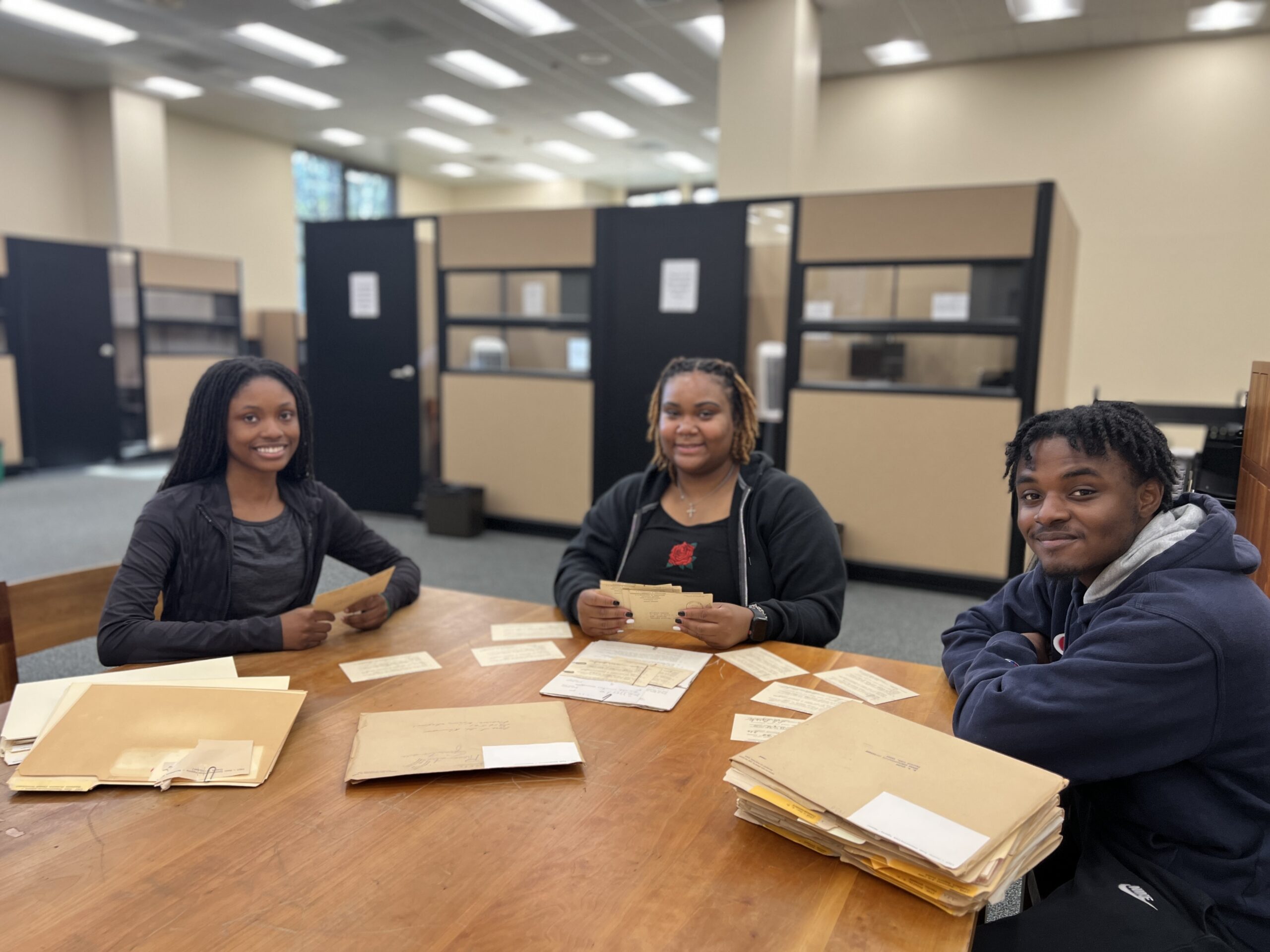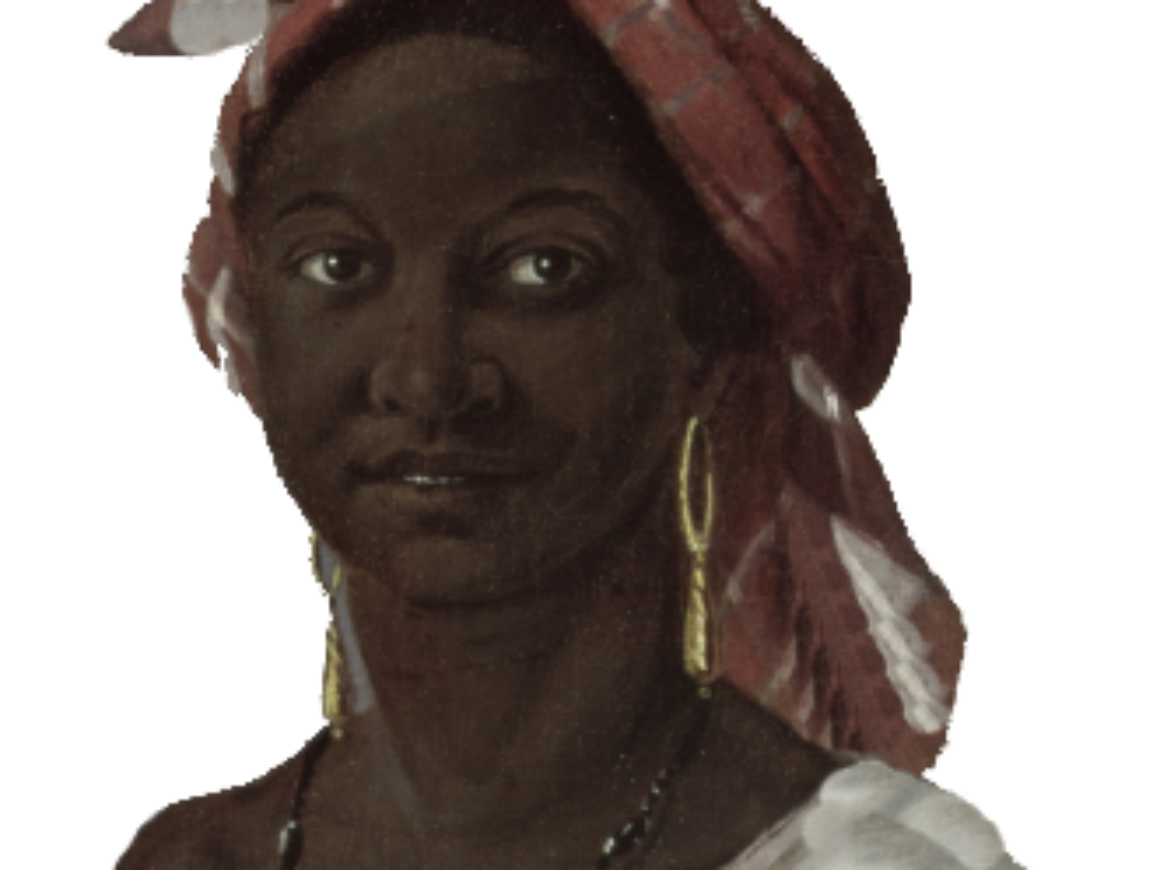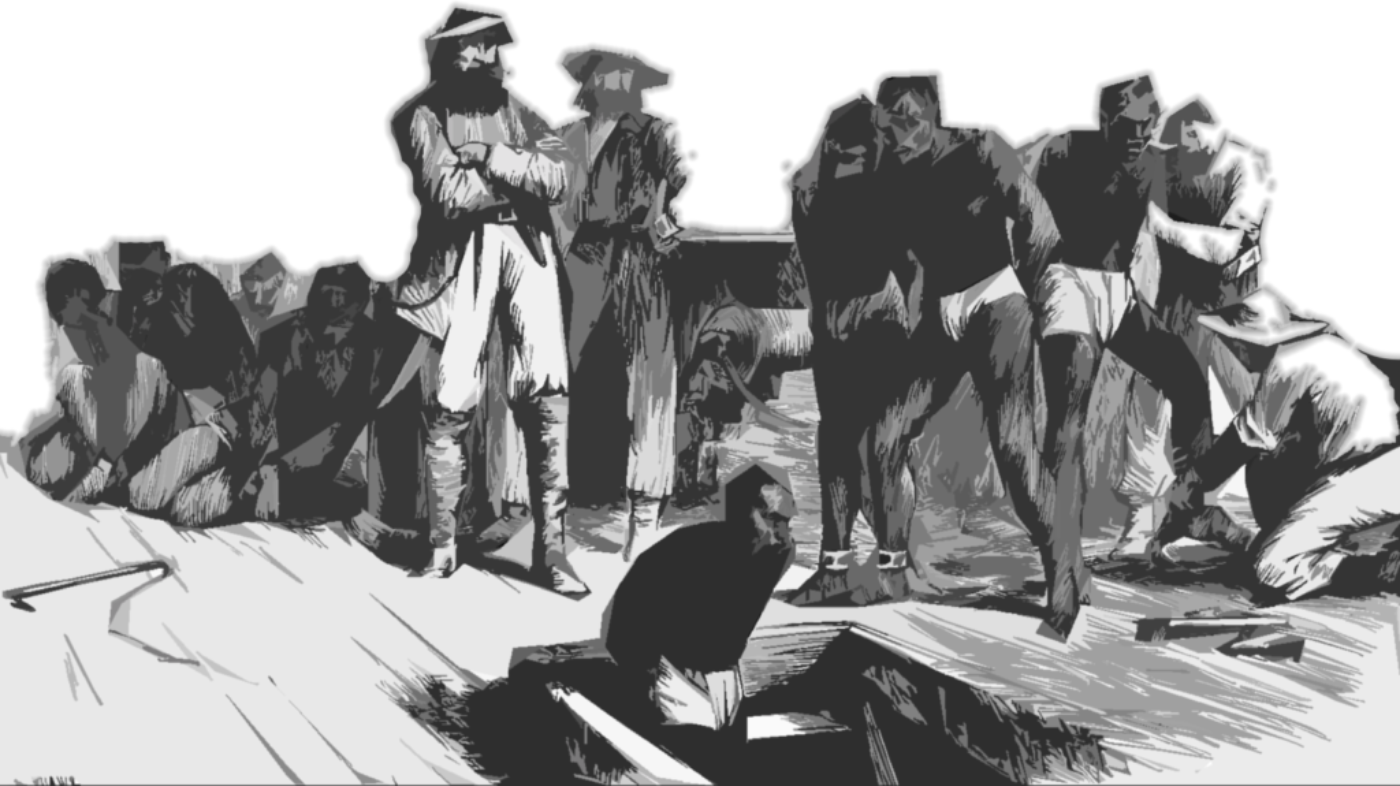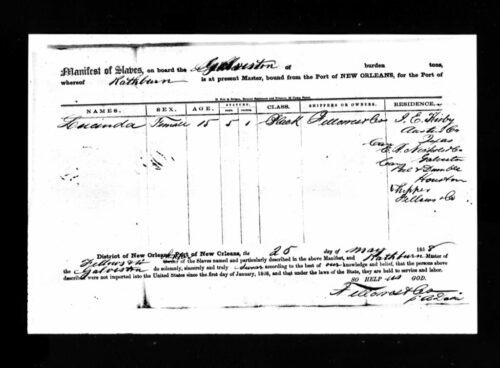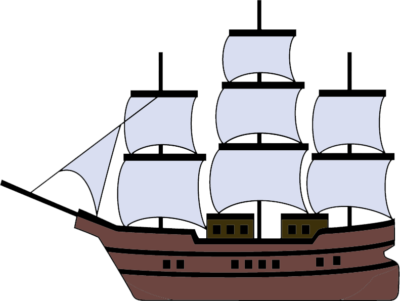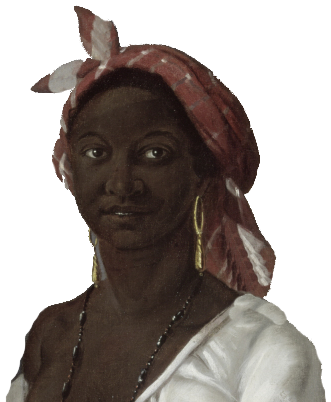Introduction to Digital Storytelling
Black Digital Humanities
HIST 3312
John B. Coleman Library – Room 111
“The black digital humanities help to unmask the racialized systems of power at work in how we understand the digital humanities as a field.” – Kim Gallon
Instructor Information:
Dr. DeWayne Moore
Assistant Professor of History
Division of Social Sciences
Office: Coleman Library Room 111
Office Hours: MTWThF – 9am-11:30am or by appointment
Email: [email protected]
Twitter: @digpvpanther
Description:
This course will introduce students to digital storytelling as well as the emerging field of Black Digital Humanities. It will also help students understand the relationship between digital humanities and African American History. In addition to assigned readings, students will attend lab sessions and learn digital technologies and skills, such as blogging, digital exhibition curation, social media management, ArcGIS mapping, and digital content management. The lab sessions will allow students to apply theory to praxis.
In lab sessions, students will learn to use digital exhibition software (such as PassItDown, Wordpress, and ArcGIS StoryMaps), mapping software (such as ArcGIS Online, ArcGIS Survey 123, and ArcGIS Experience Builder), digital content management systems, and social media management tools. Students will also conceptualize a Black Digital Humanities project by the end of the semester and write a grant application for potential funding.
Course Website:
We will use the course website for blogging. The syllabus is also available there as well. The website is: https://pvpantherproject.com/hist-3312-digital-storytelling/
Expectations:
- Students are NOT expected to have specific technical knowledge prior to this course.
- Students are expected, however, to be independent learners who strive to solve technical and historical problems.
- Students must engage substantively with readings on the history, theories, and methods of digital humanities as well as African American History. Thus, students must read the materials prior to class and be prepared to discuss them.
- Students must respond to emails from myself and their cohort in a timely manner. Due to meeting only once per week, it will be necessary to communicate outside of I recommend strongly that you link your PVAMU email account (which is what is connected to Canvas) to your personal email so that you receive all correspondence.
- Students are required to have access to either a laptop or tablet. If you do not have a laptop or tablet, you can borrow one from John B. Coleman Library. Talk to the librarians at the circulation desk to find out how.
Objectives:
Students who take this course will…
- Achieve a higher historical consciousness and a better understanding of the major issues, theories and methods in Digital Humanities, Black Digital Humanities, and African American History.
- Learn to navigate and critically analyze digital technologies as well as curate digital stories using them
- Conceptualize and develop a Black Digital Humanities project
- Write a grant proposal to fund their project
Assignments:
- Blog Posts: Students will respond to readings and labs throughout the semester and publish their responses online. Rather than provide summaries of the readings, students will demonstrate their critical thought process and analysis of scholarship and digital tools. The blog posts are due at noon on the day of class. Students must also read the blog posts of their cohort and comment on at least one each week prior to our class meeting. See Blog Post Guidelines for more information!
- Digital Humanities Historiography: Students will write a short paper analyzing two or more readings on the development of digital humanities.
- Analysis of a Digital/Public Humanities Project: Students will critically analysis one of the Black Digital Humanities projects at this link – https://pvpantherproject.com/2022/09/black-digital-humanities-projects-resources/
- Digital Projects for the Public Proposal: Students will also conceptualize and develop a prototype for a Black Digital Humanities project and write a grant proposal to fund
We will use the Digital Projects for the Public grant available from the National Endowment for the Humanities as our guide [LINK]
Attendance and Participation:
Students must have completed the readings and assignments prior to attending class. Students must also be prepared to actively participate. If you cannot attend class, please let me know at least 24 hours before class (except in the case of emergencies).
Academic Integrity:
I strictly follow the University’s rules regarding plagiarism and other academic irregularities. Please consult me if you have any questions about what is and is not appropriate regarding the use of sources or citation.
Blog Post Guidelines:
The syllabus contains several assignments marked “blog post.” These weeks will require that students write a blog post analyzing or responding to one or more of the readings for that week.
Requirements:
- Summarize the argument of each author
- Respond to one or more ideas in the articles and connect them to current events, other readings, or your research interests.
- Provide a creative, exciting title
- Curate the posts using images, gifs, or videos with captions to illuminate
- Make sure the blog posts are between 250-500 words in length.
- Comment on at least one other student’s blog post each
The writing does not need to be academic and formal. Indeed, blog posts are most engaging when they capture the voice of the author. So please have fun with these assignments. Remember, you will be publishing them on a publicly available website. So be generous in your critiques of the readings.
If there is any reason why you cannot publish these posts under your own name, please let me know. Due: blog posted by 12pm on Wednesday; comment posted by class time on Wednesday
Grading:
- Participation and Attendance: 10%
- Blog Post Reading Responses: 20%
- Historiography of Digital Humanities Essay: 10%
- Analysis of a Black Digital Humanities Project: 10%
- Analysis of ArcGIS Map: 10%
- Digital Projects for the Public Proposal: 30%
- Peer Review: 10%
Late Assignments:
I expect assignments to be completed on the day they are due. Any late submissions without an approved excuse will lose a half-grade every day it is late.
Required Texts:
There are three books you may buy or borrow for this course. I will also provide digital copies of the introduction to each book on Canvas.
We will also discuss readings from the open access digital book:
If an article or chapter examines a specific digital humanities project, students need to examine the project as well. I have provided links to all the readings or made them available on Canvas.
Weekly Schedule:
August 21 – 25 / Introduction
How to publish a post on Wordpress: https://codex.wordpress.org/Writing_Posts
Google “Black Digital Humanities” and read through some of the results. For your first assignment, write a paragraph or two on what you think the term means.
August 28 – September 1 – Intersections
Due: Blog Post
September 4-8 – Historiography
- “Interchange: The Promise of Digital History,” Journal of American History (2008). (Canvas)
- Susan Hockey, “History of Humanities Computing,” A Companion to Digital Humanities (2004). [LINK]
- Sharon Leon, “Complicating a ‘Great Man’ Narrative of Digital History in the United States,”
Bodies of Information. (Canvas)
Due: Blog Post
September 11-15 – Historiography
- Risam, New Digital Worlds, chapters 1 & 4
Due: Digital Humanities Historiography essay
September 18-22 – The Digital Humanities Project
Due: Please submit in Canvas at most a one page abstract about your project, covering the topic, the ultimate goal, the project’s significance, and digital tools
September 25-29 – Critical Engagements with Technology and Culture
- Noble, Algorithms of Oppression, chapters 1 & 3
Due: Blog Post
Practicing the Digital Humanities
October 2-6 – African American Spaces and Geography
- Saidiya Hartman, “An Atlas of the Wayward,” Wayward Lives, Beautiful Experiments (Canvas)
- Katherine McKittrick, “On Plantations, Prisons and a Black Sense of Place,” Social and Cultural Geography, v 12, no. 8, December 2011 (Canvas)
- Stephen Robertson, “Putting Harlem on the Map,” in Writing History in the Digital Age. [LINK]
Due: Blog Post
October 9-13 – Mapping (Lab)
Guest presentation by Dr. Iyanda, Assistant Professor of History & GIS, PVAMU
Read the “About” section and navigate the site
Read the “Homepage” and “About” sections and navigate the site
Due: Analysis of a Black Digital Humanities Project
October 16-20 – Metadata
Guest Presentation by Henry Koshy, Digital Scholarship Librarian, John B. Coleman Library
- Lauren Klein, “The Image of Absence: Archival Silence, Data Visualization, and James Hemings,” American Literature. V 85 (4) December 2013. (Canvas)
- Sarah Whitcomb Laiola, “Markup as Behavior toward Risk,” American Quarterly, 70, no. 3, September 2018: 561-587.
- Amy Earhart, “Can Information Be Unfettered?: Race and the Digital Humanities Canon,” Debates in the Digital Humanities. [LINK]
Due: Blog Post
October 23-27 – Metadata, Categorization, and Wordpress (LAB)
Due: Blog Post
October 30 – November 3 – TBD
Due: First Draft of Grant Proposals – Humanities Content, Creative Approach, and Audience, Distribution and Evaluation
November 6-10 – Peer Review
Peer Review of Grant Proposals
November 13-17 – Social Media and Social Movements
- Tufekci, Twitter and Tear Gas, chapters 1&5
Due: Blog Post
November 20-24 – Peer Review of Complete Project Proposals
- Miriam Posner, “What’s Next? The Radical, Unrealized Potential of the Digital Humanities,” [LINK]
Final Proposals DUE: TBD
Due: Post your project abstracts to the course blog
